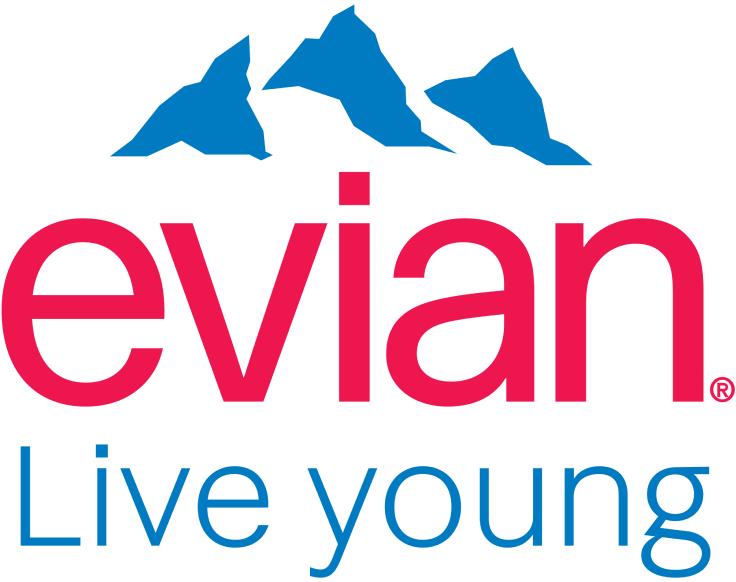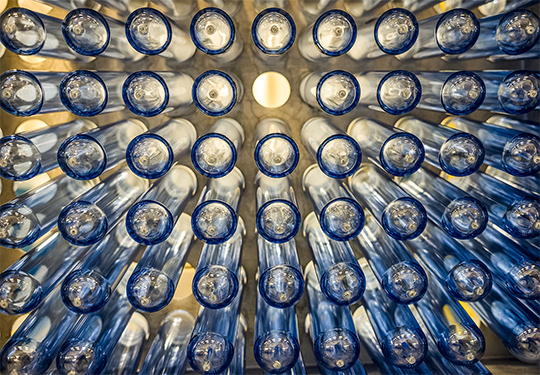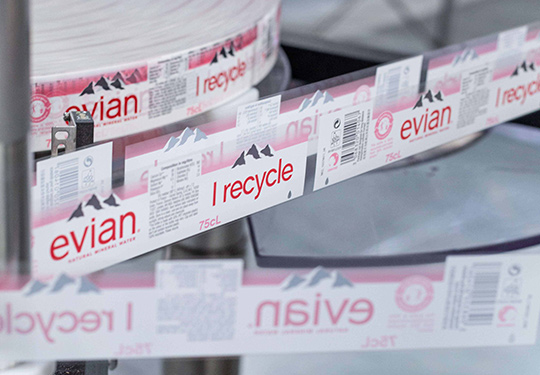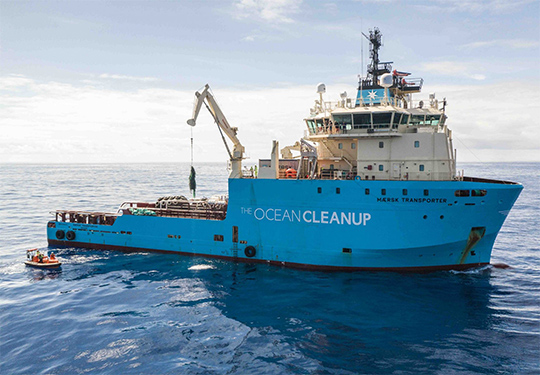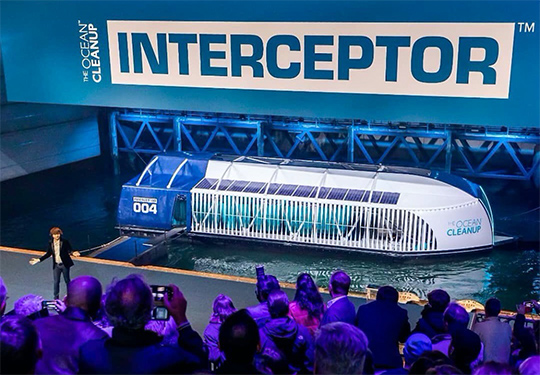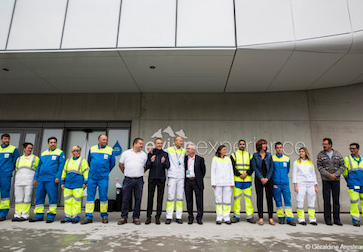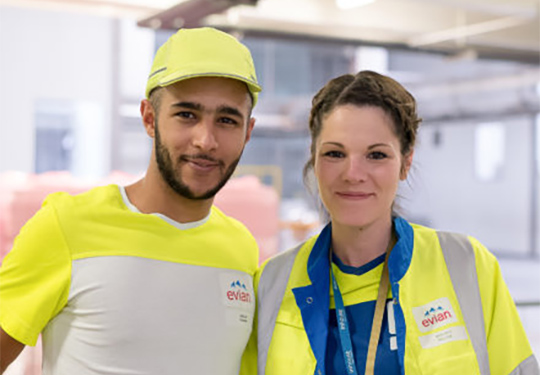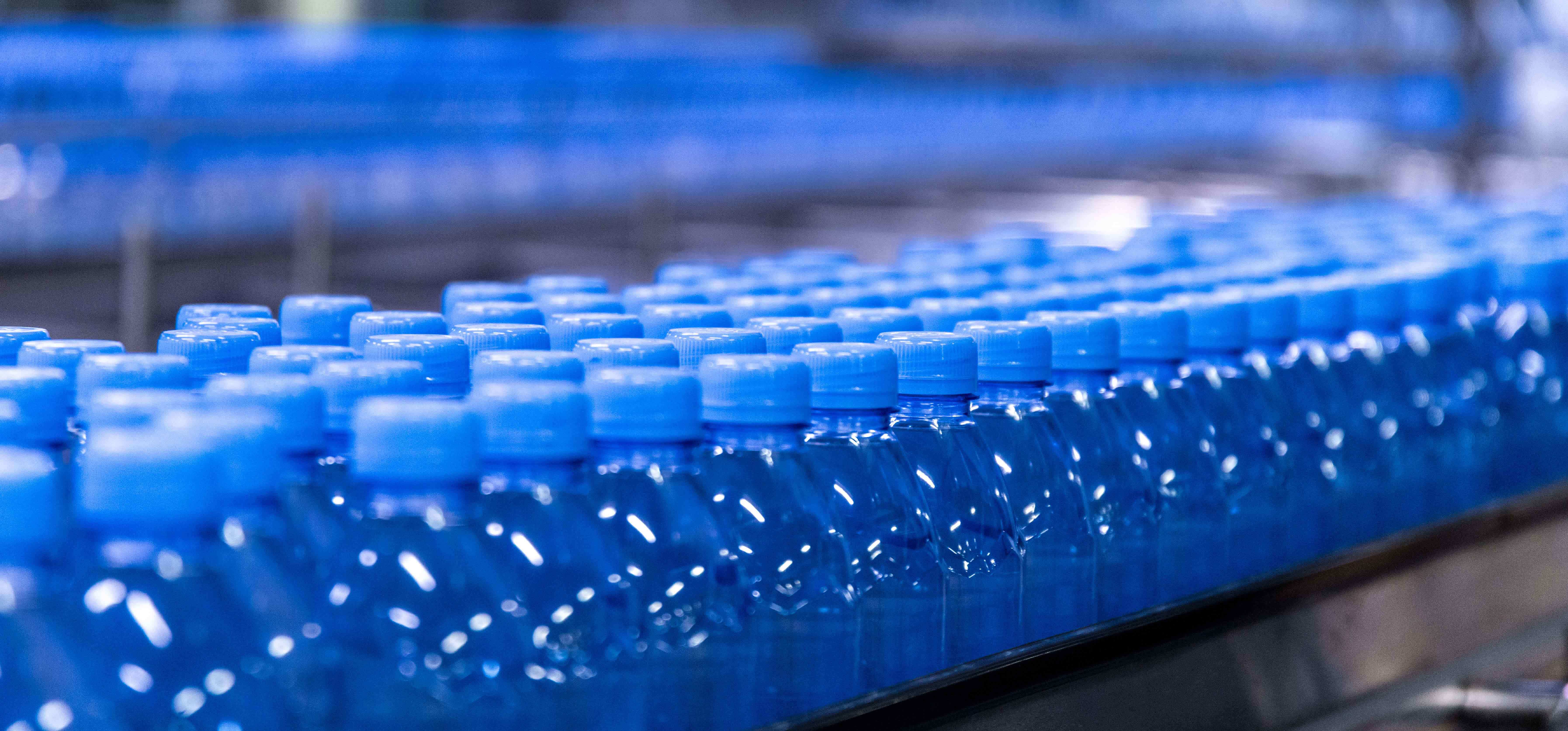
Packaging and recycling
Packaging allows us to conveniently bring our water directly from the source to you, preserving the natural mineral water’s quality–but we believe it shouldn’t come at the expense of the environment. After all, our water couldn’t exist without a healthy environment.
The journey ahead is even tougher, which will require reinforced efforts to improve evian’s environmental impact.
However, the packaging issue needs to be addressed in a holistic way, taking into account a number of factors such as food safety imperatives, production and transportation costs & associated environmental impact, as well as the availability of materials.
That’s why we want to work on a full range of solutions:
- Reducing as much as possible unnecessary packaging
- Accelerating reuse and recycled packaging
- Contribution to the development of effective collection systems
- With an end-objective of keeping packaging in the loop and out of nature.
In addition, the brand will continue to experiment new formats and forms to address future business models, such as our refillable system pilot at Wimbledon this year, which allows us to gain key learnings that will enable use to accelerate reuse options for the brand.
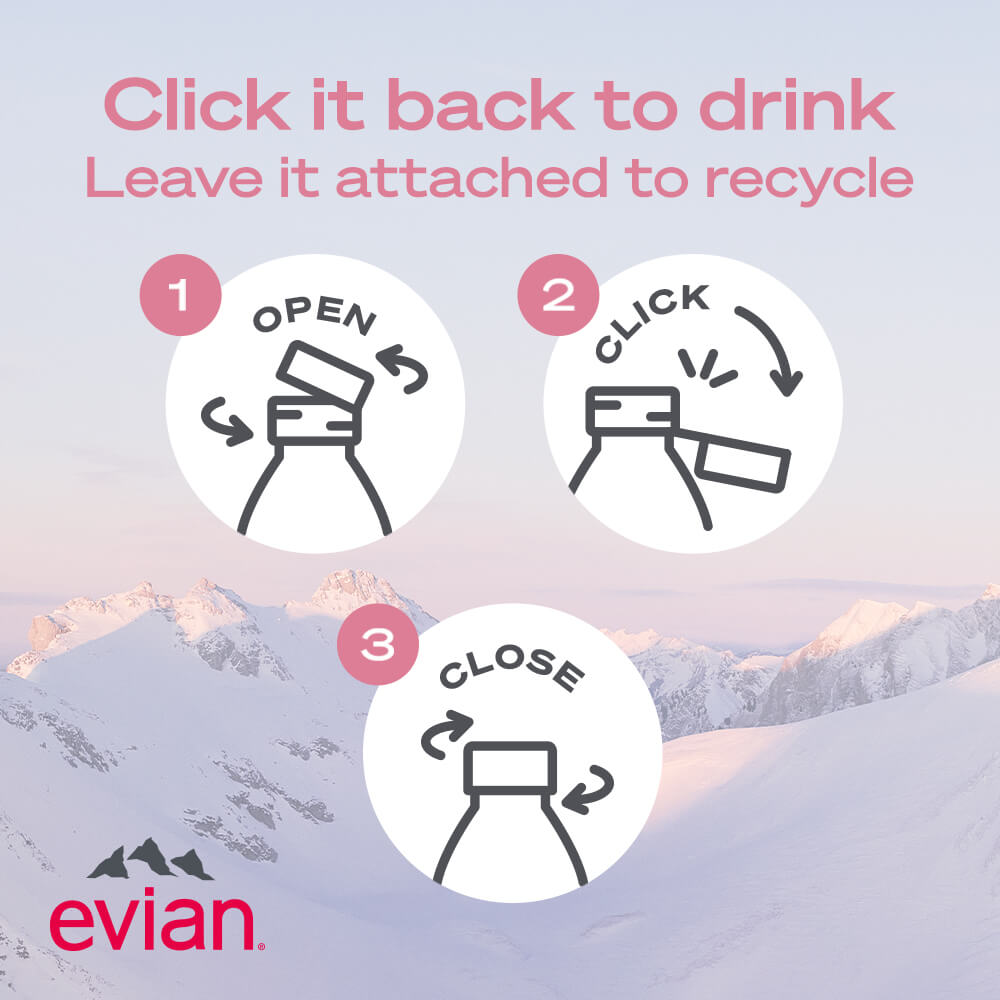
New attached ‘click’ cap
We are currently moving our evian range to a new ‘click’ cap that is designed to stay attached to the bottle throughout its usage and when recycled.
Look out for the image on the label, and don’t forget to ‘click’ it back to drink, and leave it attached when you recycle it.
The new cap aims to create a more convenient drinking experience: leaving it attached means you don’t have to hold it in your hand, and don’t risk dropping or losing it.
What is the benefit of attaching the cap to the bottle?
Removing caps and recycling them separately to the bottle can cause them to be improperly sorted in the recycling process. Because of their small size, individual caps can even get lost in nature, so they end up as litter and are no longer kept in the recycling loop.
Attaching the caps to the bottles is another step to ensure caps are recycled together with the bottles, to help improve cap recycling rates.
Adopting a circular packaging model
Some mainstream bottling systems are still primarily linear—raw materials are used to make packaging, and after the product is consumed, the packaging is thrown away, adding new waste to the environment. Simply put: this model isn’t sustainable.
Because we’re committed to protecting and nourishing the health of our planet and its people, we are playing our part to accelerate the transition from a linear towards a circular economy of sustainable packaging. This means eliminating packaging we don’t need and innovating to create recyclable packaging that can be safely reused again and again so it remains part of the circular economy and does not become waste or pollution. In January 2018, we pledged to transform our packaging to make all our plastic bottles* from recycled PET (rPET) by 2025.
In 2019, we introduced our first recycled PET bottles at The Championships, Wimbledon as part of a pilot of circularity as a solution to plastic waste. We worked together with the All England Lawn Tennis Club to implement a range of initiatives to encourage recycling at the event. This included replacing our logo with the message ‘I Recycle’ and working with the All England Lawn Tennis Club to increase the numbers of recycling bins around the grounds. All bottles collected from recycling bins were made into bottles again! The UK environmental charity, RECOUP independently oversaw this process.
*excludes label and cap
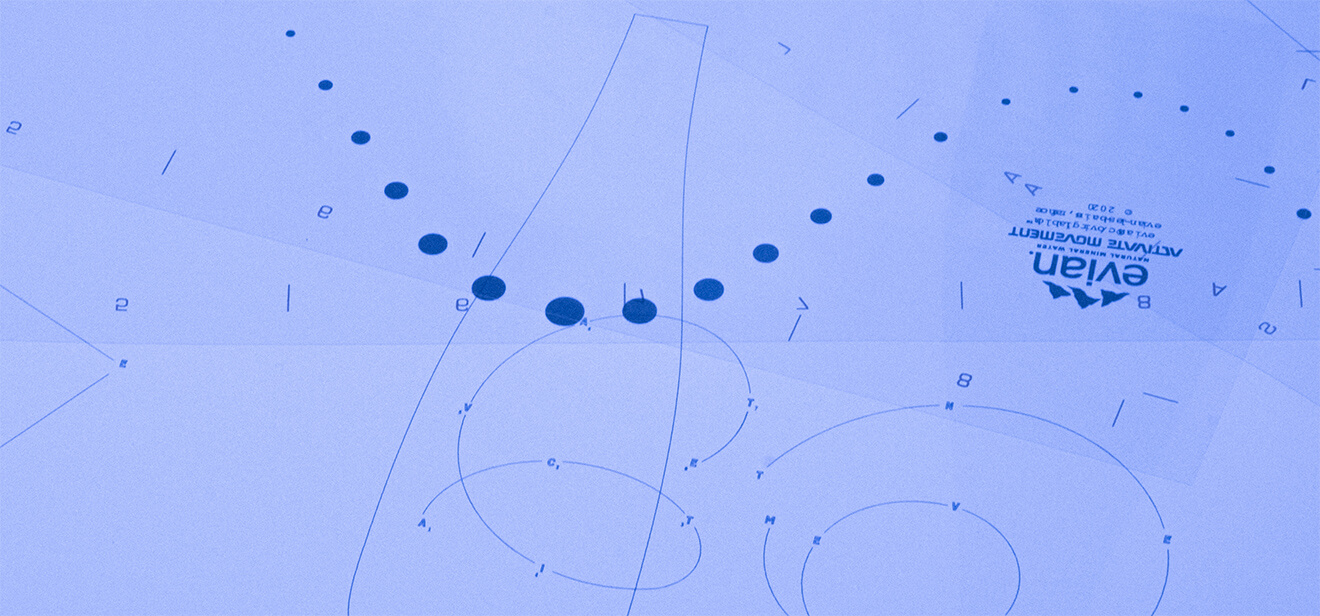
When it comes to packaging innovations that benefit the environment and in turn, the people, good is never good enough. As we work to reimagine the packaging landscape, our efforts are in vain if these innovations aren’t accessible to or practical for people everywhere. That’s why we’re partnering with innovative brands like Soma to create forward-thinking yet practical designs for the future.
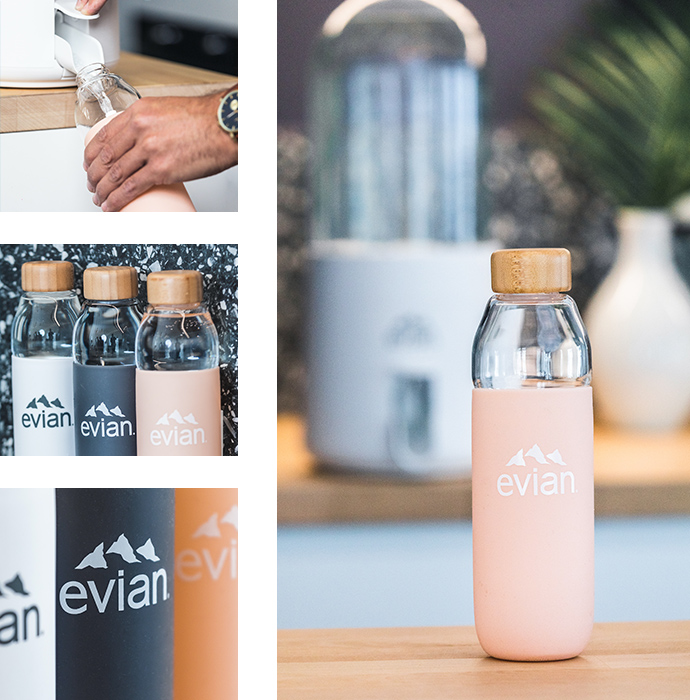
Soma
Just like us, Soma is a company that strives to reduce their global impact. In fact, they’re a Certified B Corporation®, meaning they’ve earned the right to be included in a group of businesses that meet the highest standards of verified social and environmental performance, public transparency, and legal accountability to balance profit and purpose. Not only do they make refillable glass bottles, they’re also continually looking for new ways to solve some of the world’s water challenges, like donating to water projects. To put it simply: we complement each other. Together, we’re aiming for everyone to be more conscious in their consumption without having to sacrifice form or function.
The first product of our collaboration debuted in 2019 when we launched evian x Virgil Abloh refillable glass Soma water bottle, a new hydration accessory for people to enjoy water at home or on-the-go. Virgil’s “Rainbow Inside” evian reusable water bottle was designed to be the perfect on-the-move accessory that can be refilled time and time again.
1992
Since 1992 evian in the U.K. has been recyclable.
2008
In 2008 we first used recycled plastic in the production of our bottles. Since then we have been striving to increase the percentage that comes from recycled bottles.
2019
Launched our first 75cl, 1L and 1.5L bottles with RPET (recycled plastic) in the UK. We launched our first refillable bottle with Soma.
2020
Launched Limited Edition ‘Activate Movement’ collection with Virgil Abloh.
